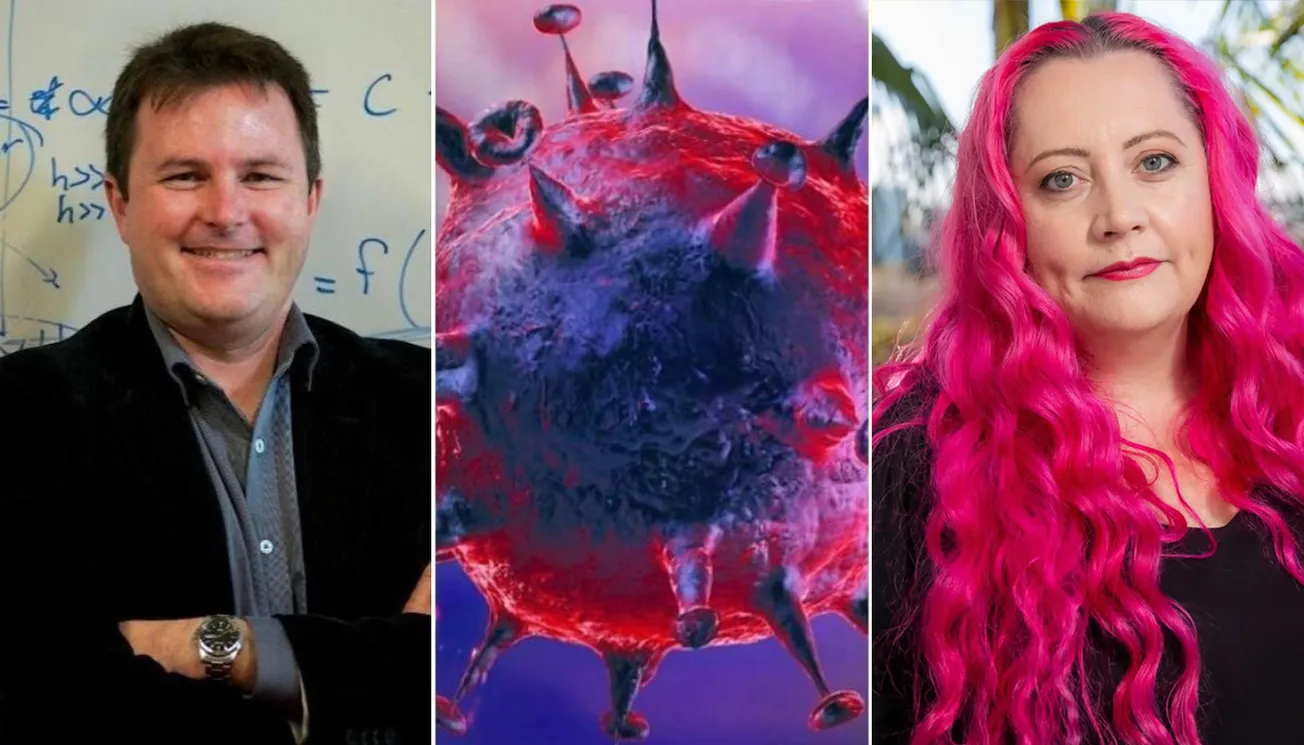Table of Contents
“Academic freedom” is a funny old thing. Like Churchill’s characterisation of free speech, “Some people’s idea of it is that they are free to say what they like, but if anyone else says anything back, that is an outrage”.
Case in point: Siouxsie Wiles and Shaun Hendy.
These two are a prime example of what we in Australia call “media tarts”: people who assiduously seek out media attention at every turn and often in inverse proportion to their status or expertise. In the cases of both Wiles and Hendy, neither have any expertise in immunology or virology, yet they’ve both clamoured for any media time they can get their paws on.
Well, not quite any media time. Wiles was particularly miffed when video footage of her flouting her own advice for how to behave during lockdown drew quite a bit of media attention. As for social media attention…
The academics have been threatened by what they have called “a small but venomous sector of the public”. They argued the university had not adequately responded to their safety concerns and requests for protection.
This seems to be a classic case of “can dish it out but can’t take it”.
The thin-skinned hypocrisy is even more gob-smacking, here:
Less visible but still damaging threats or derogatory comments can come from within the university community, too.
Hendy and Wiles, remember, co-authored an open letter attacking seven prominent academics who questioned a government push to make Maori mythology equal to “Pakeha science” in the school science curriculum. Wiles went further, taking to Twitter to whip up a pile-on which ultimately resulted in the academics — including an eminent Maori-heritage scientist — being subject to an inquisition by the Royal Society of New Zealand.
Yet, Wiles and Hendy have a right old tanty about other people doing exactly what they have done (a great deal less, in fact: no one on Twitter has sicced a professional body onto them).
Big fat hypocrites, indeed.
But, just because Wiles and Hendy are staggering hypocrites, that doesn’t necessarily make them wrong about academic freedom. Or does it?
My focus is on the initial determination by the ERA, which referred to a letter from the university to Wiles and Hendy in August 2021 that urged them “to keep their public commentary to a minimum and suggested they take paid leave to enable them ‘to minimise any social media comments at present’.”
In other words, if you don’t want to get burned, shut yer cavernous gobs and get out of the fire.
The ERA also noted the university “says that the applicants are not ‘expected’ or required to provide public commentary on COVID-19 as part of their employment or roles with the respondent, but it acknowledges they are entitled to do so.”
This is true: Wiles and Hendy chose to jump in the dumpster fire. Should they really be surprised at getting a bit singed?
The academics argued that the university is statutorily required to “accept a role as critic and conscience of society” – as is set out under section 268 of the Education and Training Act 2020.
Universities routinely fulfil this role when academic staff and students state controversial or unpopular opinions and the results of their independent scholarship. Asking academics to step back from those roles to avoid risk seems to acknowledge that the threat derives from them doing their work.
I also fail to see how it would mitigate risk. An electrician who tried to mitigate the risk of electrocution by spending less time around wires hasn’t actually reduced the risk of electrocution when doing their job. They’ve just reduced the amount of time they are doing their job.
RNZ
But, is it their job? If Wiles stuck to her job, she’d stick to talking about luminescent fungi. Somehow, one suspects that wouldn’t attract quite the same media attention, though. As any of the Kardashians could no doubt tell her, screeching for public attention is a two-edged sword.
Hendy, on the other hand, can at least point to his role as a covid modeller. In which case, surely the public is entitled to judge him as harshly as Professor Neil Ferguson? Ferguson, like Hendy, has no qualification at all in the field he has chosen to appoint himself as an “expert” in. That lack of qualification, not to say expertise, is amply demonstrated by the repeated failures of both to provide modelling that bears any discernable semblance to the real world.
Hendy and Ferguson are cowboys posing as electricians, howling because they picked up a soldering iron by the wrong end and got their fingers burned.
If they really want their academic freedom protected, they might think about leading by example, and defending the academic freedom of Kendall Clements, Garth Cooper, Michael Corballis, Douglas Elliffe, Elizabeth Rata, Emeritus Professor Robert Nola, and Emeritus Professor John Werry.
Otherwise, we can only conclude that they don’t really believe in academic freedom at all. They just want the freedom to bully other academics without ever being held to account in their turn.









